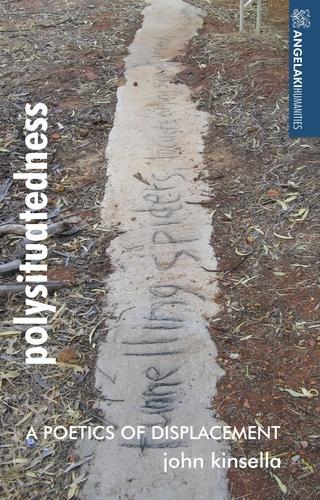
Polysituatedness: A Poetics of Displacement
(Hardback)
Available Formats
Publishing Details
Polysituatedness: A Poetics of Displacement
By (Author) John Kinsella
Manchester University Press
Manchester University Press
19th January 2017
United Kingdom
Classifications
Tertiary Education
808.1
Winner of Humanities Research Awards 2018: Humanities Book of the Year 2018 (UK)
Physical Properties
Hardback
448
Width 156mm, Height 234mm
Description
This book is concerned with the complexities of defining 'place', of observing and 'seeing' place, and how we might write a poetics of place. From Kathy Acker to indigenous Australian poet Jack Davis, the book touches on other writers and theorists, but in essence is a hands-on 'praxis' book of poetic practice. The work extends John Kinsella's theory of 'international regionalism' and posits new ways of reading the relationship between place and individual, between individual and the natural environment, and how place occupies the person as much as the person occupies place. It provides alternative readings of writers through place and space, especially Australian writers, but also non-Australian. Further, close consideration is given to being of 'famine-migrant' Irish heritage and the complexities of 'returning'. A close-up examination of 'belonging' and exclusion is made on a day-to-day basis. The book offers an approach to creating poems and literary texts constituted by experiencing multiple places, developing a model of polyvalent belonging known as 'polysituatedness'. It works as a companion volume to Kinsella's earlier Manchester University Press critical work, Disclosed Poetics: Beyond Landscape to Lyricism. -- .
Reviews
The collection of critical essays, journal entries and poems, concerned with the complexities of defining place, ways of seeing and a poetics of place, explores his praxis in Jam Tree Gully, near Western Australian wheatbelt, the Mizen head peninsula, west Cork, and at Churchill College, Cambridge. He argues that ones place-identification is polyvalent and that place is a paradoxical condition of presence in recognition that individuals occupy many spaces at once and that no place is isolated from others. His engagement with displacement, the politics of making poems out of place, migration, and concern with animal, land and human rights radically challenges and offers a feast for the reader.
Tears in the fence Issue 66
This work [...] is extraordinarily timely, and capable of stirring fruitful, productive reflection and action on how our capacity and capability with language can affect and interact with our place in the natural and social environment, the ecosphere.
Stride Magazine
The result is a book that provides so much to think about regarding our social, cultural, and political relationships to the world, that one picks it up and reexamines it over time, not only because of its 428 pages, including a rich bibliography, but also because of Kinsellas creative use of language. There is pleasure in engaging his vocabulary and looking up the words for poetic forms or geological formationsconcretions, djitty-djitty, boustrophedon.
Wendy Singer, Kenyon Review September 2018
Author Bio
John Kinsella is Professor of Literature and Sustainability at Curtin University and a Fellow of Churchill College, Cambridge University
